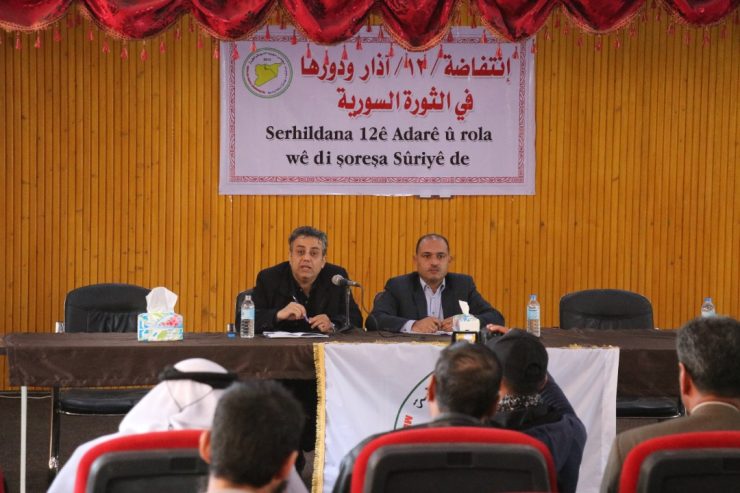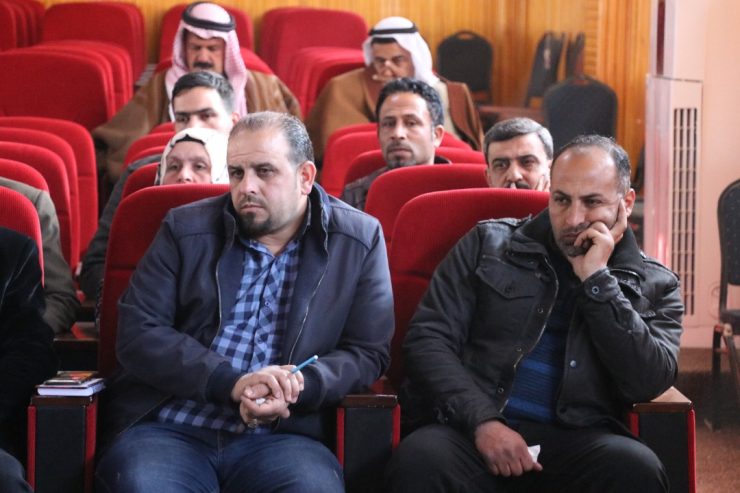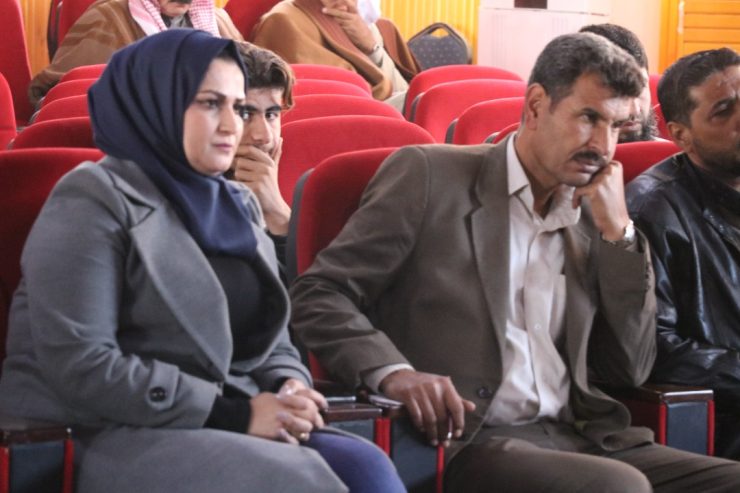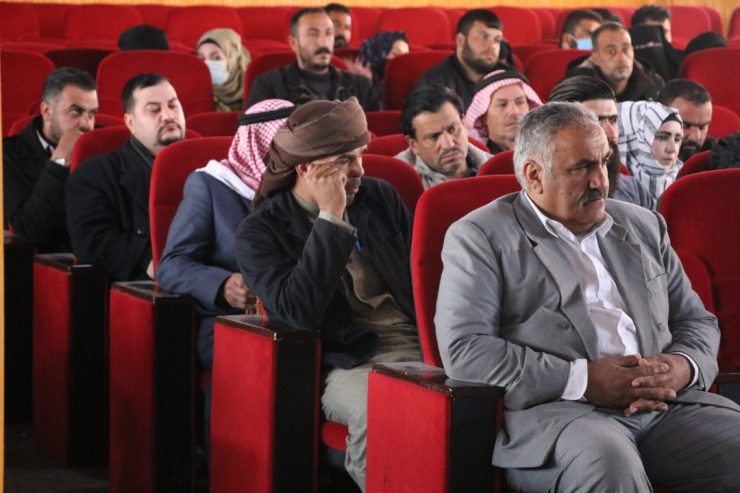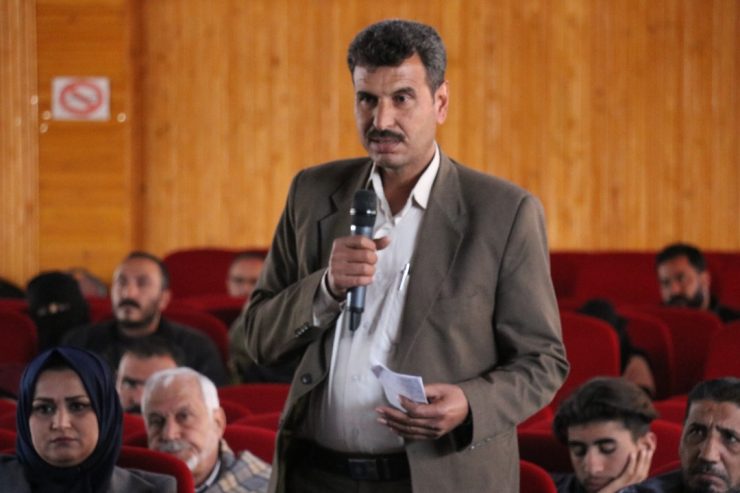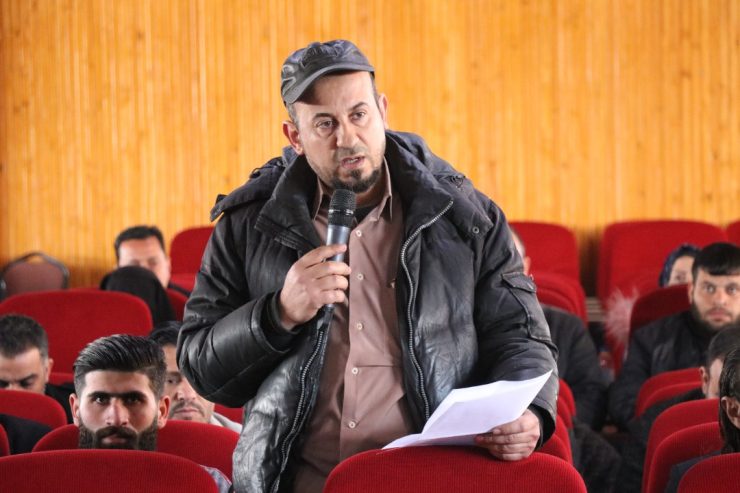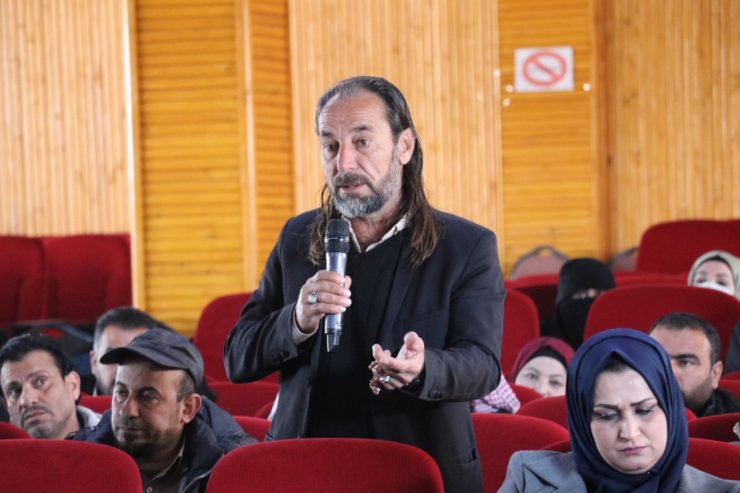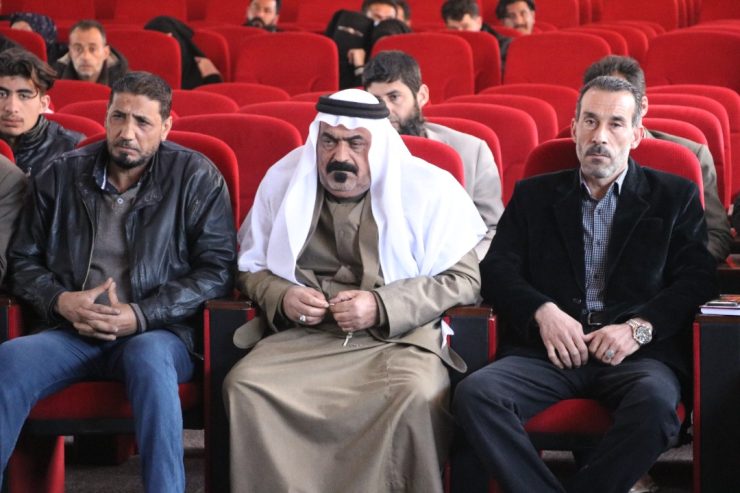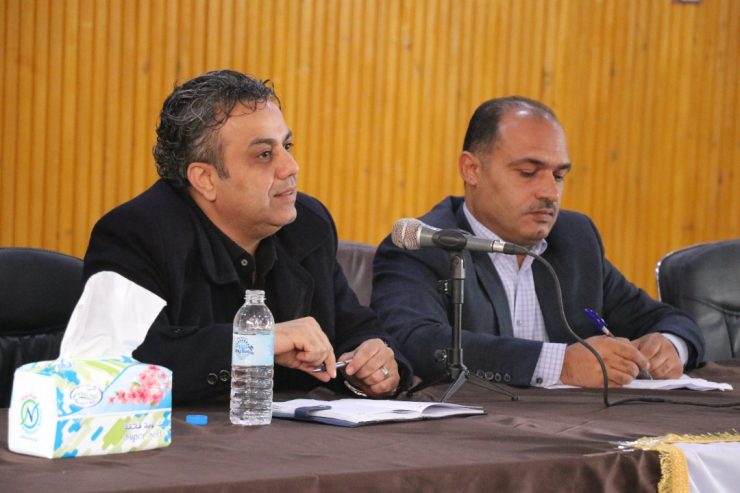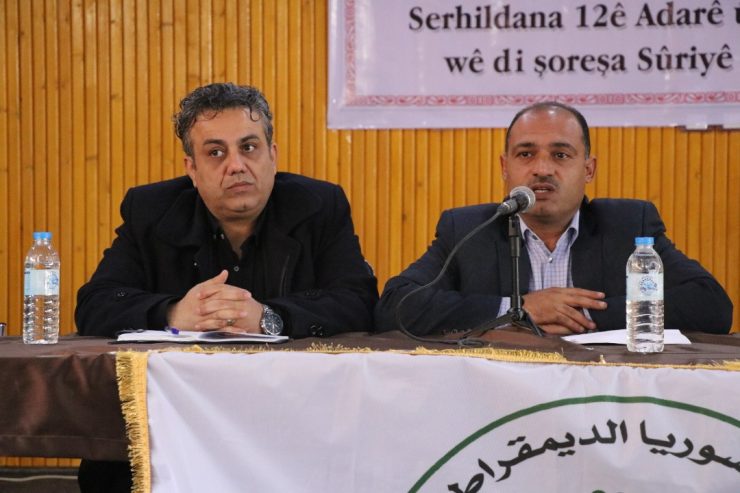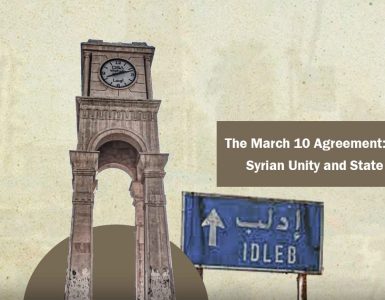On Monday, March 14th, the Syrian Democratic Council organized a dialogue seminar in Deir ez-Zor countryside on “The March 12th uprising and its role in the Syrian revolution”, with the participation of dignitaries and representatives of civil society, those interested in public affairs and democratic civil administration institutions in Deir ez-Zor.
The seminar was begun with a brief speech by the moderator of the seminar, a member of the Executive Body of the Syrian Democratic Council, Thabet Al-Jawhar, during which he talked about the events of the Twelfth of March in 2004 and how it was the first spark of the Syrian Revolution and made Syrians not to be afraid of authority in Damascus where it tried to divide components, especially the Kurdish and Arab component, but failed because of the awareness of the peoples of the region and their cohesion.
On the role of “Al-Qamishli uprising” in the Syrian Revolution, a member of the Presidential Council and the Bureau of SDC relations, Sihanouk Debo, spoke about a number of factors that led to the Syrian Revolution, which were as a result of the state of Central tyranny practiced by the authority in Damascus over the past decades.
“The Syrian Revolution in 2011 was as an inevitable result of the overlap of political, social and economic factors, expressing that there is a structural crisis that must be solved and cannot be circumvented in any way,” Sihanouk Debo said.
“Al-Qamishli uprising” was a renaissance movement in order to reform the Syrian national identity that Syrians have not felt since the tyranny power has taken position in Syria.
Debo added that the Kurdish issue in Syria is a national issue, which must be resolved in accordance with Syrian national standards and established international covenants in order to preserve the unity and safe of the country.
The member of the presidential council explained that the regime of the central tyranny during “Al-Qamishli uprising” and now during the Syrian Revolution is trying to make the Kurds as advocates of separation and division and that the events of March 12th so far is a war among Arabs and Kurds, but the authority failed, and the state of coexistence and harmony that we are living now proves it.
“Syria is a diverse country and one of its components cannot be neglected, and the regime of tyranny practiced everything under the title of “The Arab Nationalism” but most of people who lost were Arabs as a result of the authority practices” he said.
He concluded that the model of the Autonomous Administration is an integrated and comprehensive solution for the Democratic issue that we need as Syrians and a comprehensive radical revolutionary treatment of the issues of transition and change. The Syrian people reject the nature of the central tyranny regime and that the regions of northern and eastern Syria and their peoples will not be a part of its re-production and recovery through the reconciliation that the authority in Damascus is working on and promotes its success despite its abject failure.
The moderator of the seminar allowed for attendees to express their views where they expressed their views on the March uprising and the attempts of the authority in Damascus to stir up a discord among the components of the region and also the authority tried to involve the people of Deir ez-Zor and use them to target the Kurdish people but it failed.
In turn, a member of the Executive Body, Thabet Al-Jawhar, pointed out the project of the Syrian Democratic Council and its path to resolve the Syrian issue through dialogue and consensus of Syrians as well as the council sought to structure the Democratic Opposition and made a progress in that regard.


